UK Minister discusses int’l efforts for Sudan ahead of key London conference
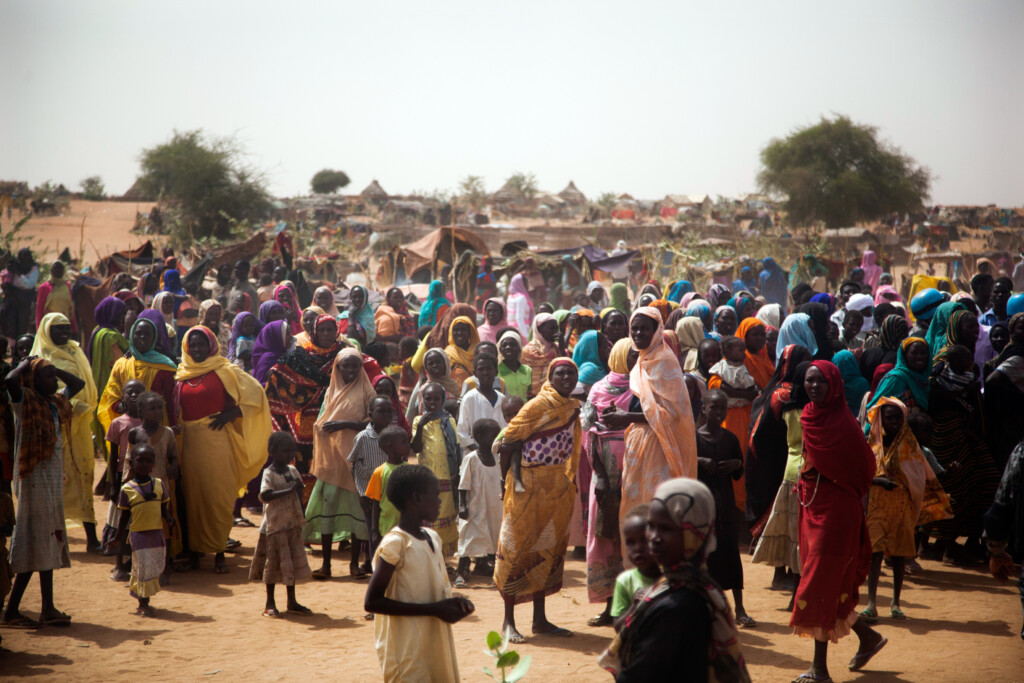
Displaced people in Zamzam camp in El Fasher, North Darfur (File photo: Albert González Farran / UNAMID)
The UK Minister for International Development, Baroness Chapman, has outlined the British government’s approach to supporting Sudan’s most vulnerable, including displaced people and refugees, in an exclusive interview with Radio Dabanga today. Speaking to Amgad Abdelgadir of Radio Dabanga (scroll down for video), Baroness Chapman notes that the upcoming London conference, coinciding with the two-year anniversary of the war, reflects the UK’s ongoing commitment to addressing the crisis.
Chapman highlights the pivotal role of the UK’s Foreign Secretary David Lammy, who was deeply moved by his visit to Adré in eastern Chad, bordering Sudan, earlier this year.
“David Lammy was so affected by what he saw and the people he spoke to. He personally felt that the UK could do more. That’s why we’re bringing people together here in London, alongside the African Union and other partners, to discuss how we can work as an international community to move things towards the peace we desperately need,” Baroness Chapman said.
The minister acknowledges the critical need for financial support, confirming that the UK is prepared to commit more funds to the cause.
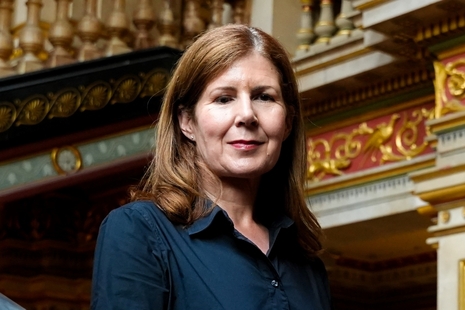
She also emphasises the importance of diplomatic leadership in fostering dialogue. “It’s not just about money. It’s about using our convening power to bring people together, creating the space for those essential discussions that can pave the way for lasting peace,” she said.
While the London conference seeks to rally international support for Sudan, it comes against the backdrop of recently announced deepening aid cuts.
UK foreign aid has dropped to just 0.3 per cent of gross national income, the lowest in 25 years, while freezes in US aid from the United States Agency for International Development (USAID) have also severely impacted Sudan.
Responding to questions about how the UK will engage in Sudan’s post-conflict recovery, given the absence of Sudanese government representatives at the conference, the minister clarifies: “There is still horrendous conflict on the ground today. People are suffering and dying as a result.”
She adds, “This conference is not about including the parties from Sudan because we believe it would not take us any further at this stage. We’re not prepared to just stand by and wait. The civilians in Sudan are paying the price, and we need to use our diplomatic leverage to help move things forward.”
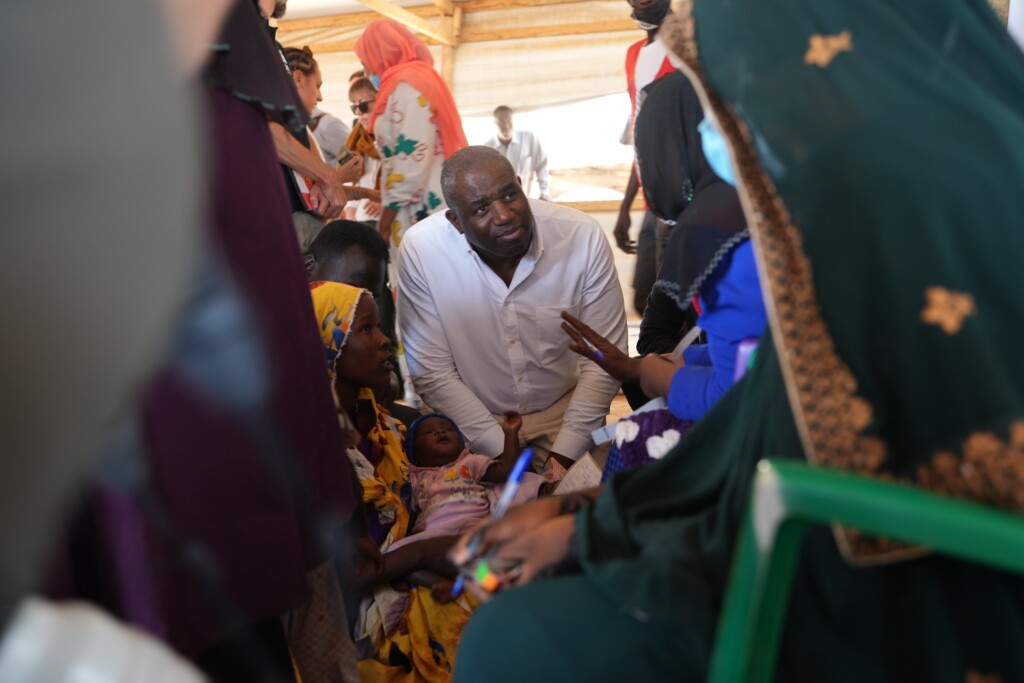
A key concern for Sudanese both within Sudan and in the diaspora is the role of international actors, particularly the United Arab Emirates, given its involvement in the region and its ongoing genocide case at the International Court of Justice (ICJ).
In response, Baroness Chapman explained the UK’s stance: “We will talk to anybody who can help in moving towards reconciliation and peace and trying to get the stability that we need. In matters surrounding allegations of genocide,” Chapman says “we leave that to competent courts. We respect the ICJ and should there be a ruling to that effect, we will respect it, and that’s our position in these matters, wherever they arise. If a ruling is made, we will of course respect that. However, we believe it’s essential that we invite the UAE. We’ve said to all other states that have involved themselves in different ways, that it’s the right thing at the moment is for everybody to be respecting the arms embargo and use their influence towards a negotiated outcome, not military force.”
In a recent report by Radio Dabanga, senior UAE official Dr Anwar Gargash dismissed Sudan’s case at the ICJ as a ‘farcical action’, accusing the de-facto Sudan government of distorting the truth.
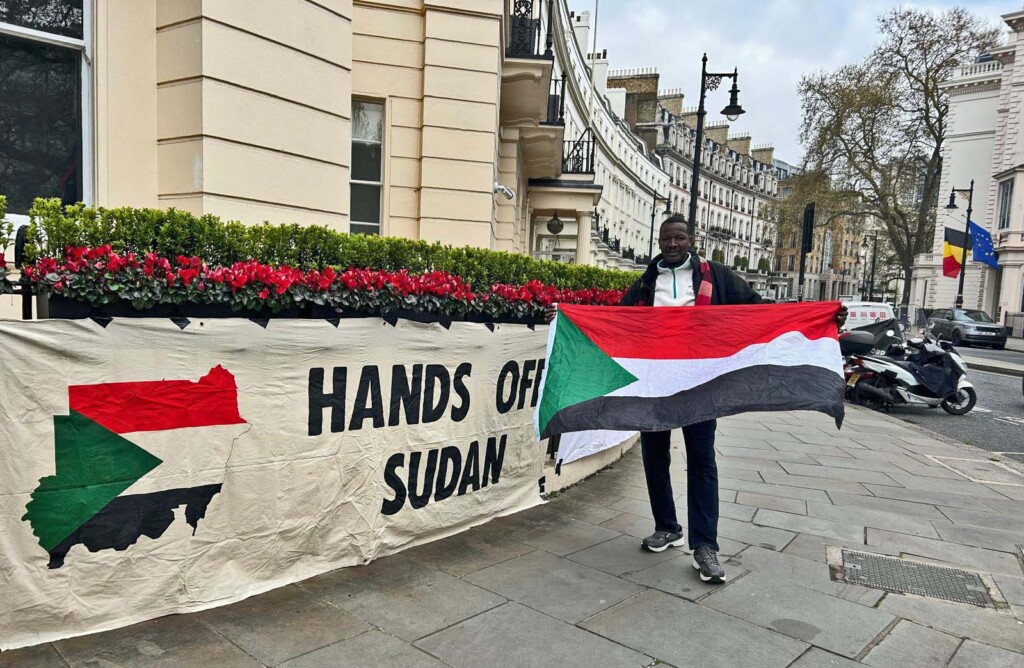
Looking ahead to the London conference, in today’s interview, Baroness Chapman outlines the UK’s approach to bringing all parties to the table, stating that achieving peace starts with dialogue.
“The first thing you need to do is get people in the same room, looking each other in the eye and agreeing on what the problem is,” she said. She stresses that the scale of the humanitarian disaster in Sudan is unprecedented, with millions at risk of famine.
“We need to recognise that everyone has a role to play in helping resolve this crisis,” she added.
Chapman concludes with a call for unity and action, underscoring the importance of international cooperation in ending the suffering in Sudan.
“This conference is a step towards not only acknowledging the scale of the disaster but also ensuring that we are all working together to find a solution for the people of Sudan,” she said.
Framed as a pivotal moment in the international community’s response to the crisis in Sudan, the upcoming London conference is expected to gather delegations from the African Union, United Nations, Western governments, and regional actors, some of whom have been accused of fuelling the conflict on the ground.
British officials say the aim is to build consensus among regional stakeholders, as the humanitarian crisis continues to deteriorate. This effort comes amid a surge in drone attacks by the paramilitary Rapid Support Forces and renewed momentum by the Sudanese Armed Forces in Khartoum last month.








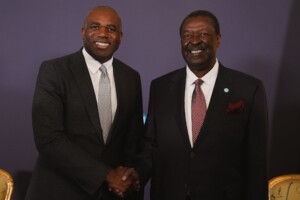


 and then
and then